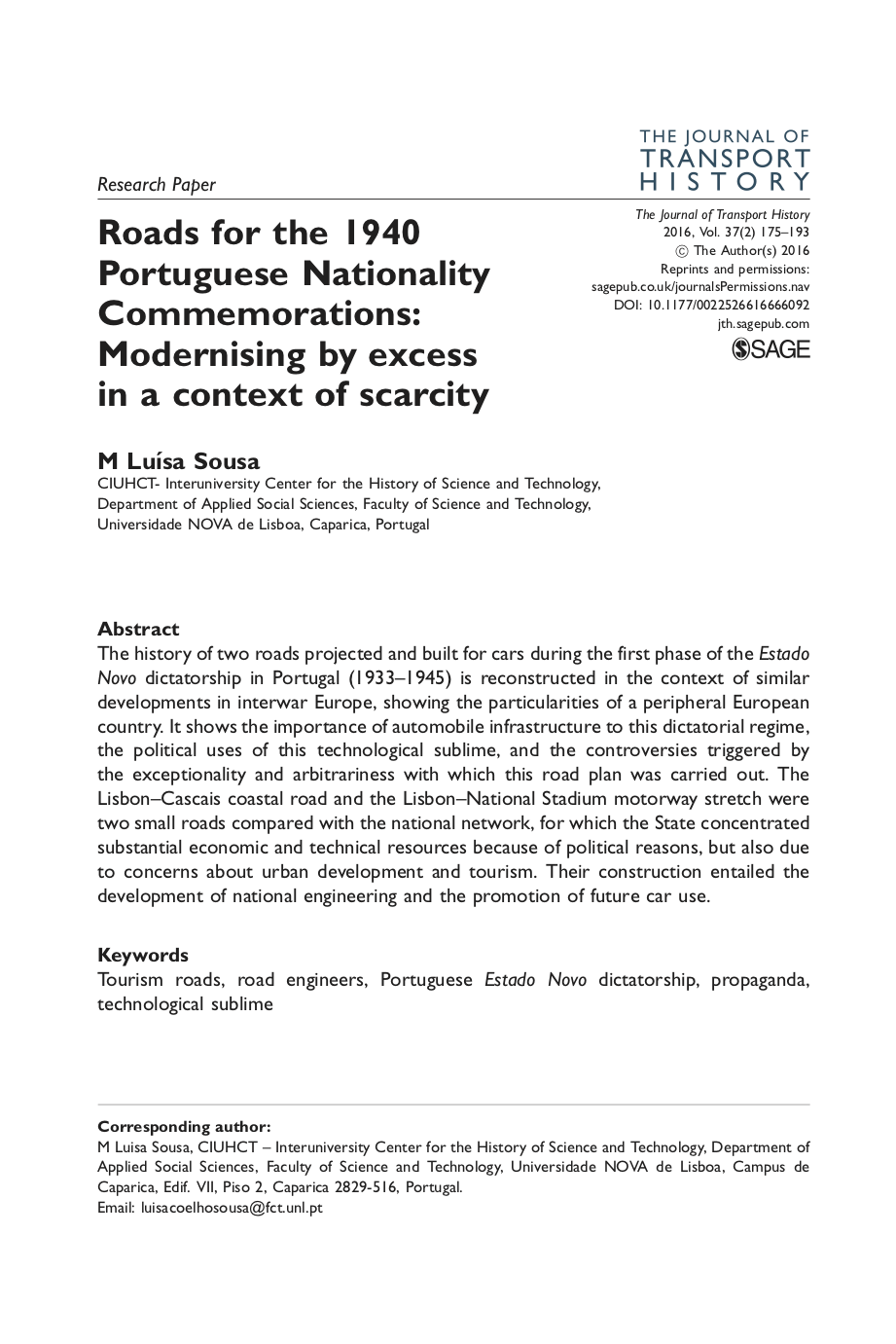Roads for the 1940 Portuguese Nationality Commemorations: Modernising by excess in a context of scarcity
- Author(s)
- Year
- 2016
- Journal
The Journal of Transport History, Vol. 37, Nº 2
- Nr. of Pages
- 175-193

Abstract
The history of two roads projected and built for cars during the first phase of the Estado Novo dictatorship in Portugal (1933–1945) is reconstructed in the context of similar developments in interwar Europe, showing the particularities of a peripheral European country. It shows the importance of automobile infrastructure to this dictatorial regime, the political uses of this technological sublime, and the controversies triggered by the exceptionality and arbitrariness with which this road plan was carried out. The Lisbon–Cascais coastal road and the Lisbon–National Stadium motorway stretch were two small roads compared with the national network, for which the State concentrated substantial economic and technical resources because of political reasons, but also due to concerns about urban development and tourism. Their construction entailed the development of national engineering and the promotion of future car use.